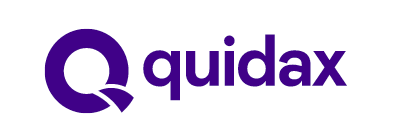In this week’s news roundup, you’ll read about Quidax’s partnership with AltSchool to provide scholarships to 100 students in the tech space, Binance restricting 281 Nigerian accounts following requests from international law enforcement, and more.
Quidax Partners with AltSchool Africa to Sponsor 100 Students to Learn Tech Skills
 African-founded cryptocurrency exchange, Quidax, has partnered with AltSchool Africa to provide sponsorships to 100 students, graduates, and undergraduates scholarships to attend AltSchool Africa’s upcoming program.
African-founded cryptocurrency exchange, Quidax, has partnered with AltSchool Africa to provide sponsorships to 100 students, graduates, and undergraduates scholarships to attend AltSchool Africa’s upcoming program.
The move by Quidax is geared towards helping bridge the gap between opportunity, talents, and education in Africa in order to meet the growing demand for tech talent and the shortage of talents needed to meet the demand. AltSchool is an online school that provides a curriculum to help up-skill non-technical people with soft and technical skills.
Speaking about the partnership, Quidax CEO and Co-founder, Buchi Okoro, said, “We believe in Africa, and for us, this partnership is an opportunity to invest in the African tech ecosystem.”
Binance Restricts 281 Nigerian Personal Accounts Due to Safety Issues
The world’s largest cryptocurrency exchange by trade volume, Binance, has barred 281 personal Nigerian accounts due to safety issues. Over a third of the accounts that were restricted were at the request of law enforcement.
A letter issued by Binance on Saturday saw the crypto exchange’s CEO, Changpeng “CZ” Zhao, state that user security was a top priority for the company and that account restrictions and anti-money laundering measures were in place.
Zhao, in the letter, said, “User security remains our top priority. We love and are devoted to our Nigerian community, but we must ensure that our users are safe. As such, protection mechanisms such as KYC, anti-money laundering measures, collaboration with law enforcement, and account restrictions are in place to ensure our community remains protected and that fraudulent activity is prevented. This is a global approach applied in every country.”
38% of the 281 accounts that were restricted were as a result of requests that came in from international law enforcement. The move comes barely a year after Binance had to briefly suspend deposits in Nigerian naira following orders from the Nigerian central bank to close accounts that were linked to different crypto platforms.
Zhao, however, also assured Nigerians that they would work to deploy more customers service and risk agents to ensure their issues are resolved in a speedy manner as well as to get a better understanding of the Nigerian market.
Botswana Passes Virtual Assets Bill to Regulate Cryptocurrencies and Digital Tokens Trading
 Botswana has now joined the list of countries working to regulate cryptocurrency trading after it passed its Virtual Assets Bill. The bill is meant to help control the trading of digital tokens and cryptocurrencies. The news was confirmed by Botswana’s Finance Minister, Peggy Serame.
Botswana has now joined the list of countries working to regulate cryptocurrency trading after it passed its Virtual Assets Bill. The bill is meant to help control the trading of digital tokens and cryptocurrencies. The news was confirmed by Botswana’s Finance Minister, Peggy Serame.
The bill will enable the country to regulate cryptocurrencies as part of its efforts to boost its policies on anti-money laundering and help tackle financial crimes. The new rules set out in the bill will require any company offering cryptocurrency or digital tokens services in the country to get a licence from the Non-Bank Financial Institutions Regulatory Authority.
The bill, which was unanimously passed by the country’s lawmakers, is said to be awaiting the president’s signature after which it will be formalised and approved.
Nestcoin raises $6.45m Pre-Seed to Drive Crypto and Web3 Adoption in Africa
Nestcoin, a startup that operates and invests in web3 applications, has announced that it has successfully closed a $6.45 million pre-seed round that will enable the company to accelerate its mission of driving crypto and Web3 adoption in the African market.
The funding round was led by 4DX Ventures and also saw participation from Serena Ventures – Serena Williams’ investment company, among other investors. Additionally, crypto-focused VCs, such as CoinFund and gumi Cryptos Capital also participated in the funding round.
Nestcoin’s pre-seed funding round comes just three months after the startup officially launched in November 2021.
To learn more about Bitcoin, download the Bitcoin Beginner’s Handbook for free.


 News1 year ago
News1 year ago
 News2 years ago
News2 years ago
 News3 years ago
News3 years ago
 News2 years ago
News2 years ago
 News2 years ago
News2 years ago
 Sponsored Posts3 years ago
Sponsored Posts3 years ago
 News2 years ago
News2 years ago
 News2 years ago
News2 years ago

 African-founded cryptocurrency exchange,
African-founded cryptocurrency exchange,  Botswana has now joined the list of countries working to regulate cryptocurrency trading after it passed its Virtual Assets Bill. The bill is meant to help control the trading of digital tokens and cryptocurrencies. The news was confirmed by Botswana’s Finance Minister, Peggy Serame.
Botswana has now joined the list of countries working to regulate cryptocurrency trading after it passed its Virtual Assets Bill. The bill is meant to help control the trading of digital tokens and cryptocurrencies. The news was confirmed by Botswana’s Finance Minister, Peggy Serame.


















 Central African Republic (CAR) has set up a 15-member committee that will be responsible for developing a bill on the use of cryptocurrencies and tokenization in the region.
Central African Republic (CAR) has set up a 15-member committee that will be responsible for developing a bill on the use of cryptocurrencies and tokenization in the region.







